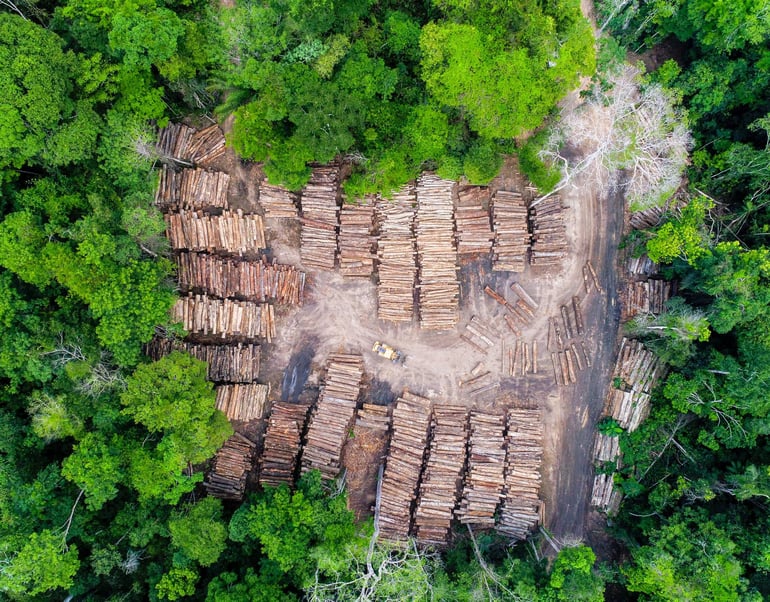Key news in this edition:
- New rules to help limit global deforestation approved by EU Parliament;
- Pay Transparency Law approved by Californian state governor; and
- Singapore Central Bank and Stock Exchange jointly launch digital ESG disclosure portal
US
US Senate approves ratification amendment to the Montreal Protocol on Substances that Deplete the Ozone Layer
On 21 September 2022, the US Senate approved the ratification of the Kigali Amendment to the Montreal Protocol on Substances that Deplete the Ozone Layer (‘the Amendment’), an amendment to a 1987 international climate agreement that aimed to protect the ozone layer by reducing the use of chemicals contributing to ozone layer depletion. The Amendment, which was widely adopted in 2016, aims for a progressive reduction in the production and consumption of hydrofluorocarbons, potent greenhouse gases that contribute to climate change even though they are not known to deplete the ozone layer.
California Senate Governor Newsom approves Pay Transparency Law
On 27 September 2022, California state governor Gavin Newsom (‘Newsom’) approved Senate Bill 1162 (‘S.B. 1162’), also known as the “pay transparency law”, which had been passed by the Californian senate on 30 August 2022. S.B.1162 mandates private employers within the state of California with 100 or more employees to submit an annual pay data report to the California Civil Rights Department (‘CCRD’), the state-run agency that enforces California’s civil rights laws. This pay data report should include information such as the number of employees under each job category divided by race, sex, and ethnicity; and the mean and median hourly rate for each combination. Any employer who fails to file the report will face a civil fine of USD 100 per employee, increasing to USD 200 per employee for repeated offenses. The first pay data report is due to be submitted to the CCRD on or before the second Wednesday of May 2023.
EUROPE
EU Parliament approves new rules for companies to help limit global deforestation
On 13 September 2022, the European Parliament approved amendments to a new regulatory framework on deforestation-free products. The new framework, initially proposed by the European Commission, makes it mandatory for companies to verify that goods sold in the EU had not been produced on deforested or degraded land. Companies placing products on the EU market would be obliged to exercise due diligence in their supply chains to ensure their compliance. The framework also requires companies to verify that goods are produced in line with human rights provisions in international law and respect the rights of indigenous peoples and local communities.
European Commission issues proposal to ban products made with forced labour
On 14 September 2022, the European Commission issued a proposal for a regulation set to ban the sale and marketing of products manufactured or produced with forced labour in the EU market. The new regulation would be implemented and enforced by national authorities in member states, and would apply both to products produced in the EU and to imports. In order for the regulation to enter into force, the proposal needs to be discussed and approved by both the European Parliament and the Council of the European Union.
Norway’s Sovereign Wealth Fund sets Net Zero Goals for 2050
On 20 September 2022, Norges Bank Investment Management (‘NBIM’), Norway’s sovereign wealth fund, and one of the world’s largest sovereign wealth funds with about USD 1.4 trillion under management, published its 2025 Climate Action Plan. NBIM’s 2025 Climate Action Plan sets targets for net zero emissions by 2050 for all companies under NBIM’s portfolio, seeking alignment with the climate agenda set by the Paris Agreement.
European Securities and Markets Authority publishes new sustainability-focused guidance for investment advisors
On 23 September 2022 the European Securities and Markets Authority (‘ESMA’), EU’s financial markets regulator, amended MiFID II, its 2018 directive on financial markets and instruments. The new guidance requires investment advisory firms to ensure clients are informed about the differences between sustainability features of different financial instruments, and are briefed on the concept of sustainability preferences in a non-technical manner. The amendment also requires firms to understand and record their clients’ respective sustainability preferences. National competent authorities are required to inform ESMA on whether they intend to comply with the new amendment, within two months from the publication of the guidelines in all official EU languages.
asia
Singapore Central Bank and Stock Exchange jointly launch digital ESG disclosure portal
On 12 September 2022 the Monetary Authority of Singapore (MAS) and Singapore Exchange (SGX) launched ESGenome, an ESG data disclosure portal for SGX-listed companies. The portal also allows for investors and financial institutions to access ESG data for said companies. The reported purpose of ESGenome is to simplify the disclosure process using a core set of metrics that is mapped across global standards and frameworks.
Philippines Central Bank updates its guidance on environmental and social risk management for banks
On 29 September 2022, Banko Sentral ng Pilipinas (‘BSP’), the Philippines’ central bank, published new guidance on its Sustainable Finance Framework, originally published in April 2020. The guidance provides further detail on the responsibility of banks’ management teams to monitor and mitigate environmental and social risks, as were outlined in the 2020 framework. According to the new guidance, banks in the Philippines would be required to collect additional data on human rights violations, labour standards, loss of biodiversity and natural resource degradation, among others. Adequate supervision of these issues should enable banks to manage any economic and financial consequences of these risks.
SOUTH AMERICA
New policy presented by the Colombian National Council to Fight Deforestation
On 13 September 2022, Colombia’s National Council to Fight Deforestation (‘CONALDEF’), a governmental body that was created in 2018 within the Colombian Ministry of Environment and Sustainable Development, held its first session under the recently appointed minister, Susana Muhamad (‘Muhamad’). According to Muhamad, the new government will be developing a comprehensive strategy to combat deforestation. The new policy will reportedly focus on prevention and containment of deforestation in the country by launching an institutional plan targeting organised criminal groups, who have been responsible for deforesting large areas in the Amazon Natural Region. Muhamad reportedly emphasised that the new strategy would promote environmental education and dialogue with local communities.
AUSTRALIA
Principles for Responsible Investment publishes policy recommendations for Australian policymakers and regulators
On 12 September 2022, Principles for Responsible Investment (‘PRI’), an independent United Nations-sponsored network of financial institutions, published policy recommendations for Australian policymakers and regulators. The PRI had reportedly looked at the extent to which the current law in Australia permits or requires institutional investors to pursue sustainability objectives. It found that the law does not always provide investors with adequate clarity, guidance and tools to support them in shaping sustainability outcomes. Among the PRI recommendations are: to update standards and guidance in order to clarify investors’ duties to address sustainability-related system-level risks; and adopting a comprehensive corporate sustainability reporting framework.







